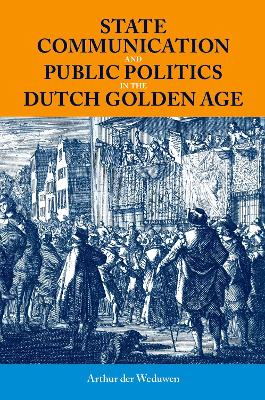British Academy Monographs
1 total work
State Communication and Public Politics in the Dutch Golden Age
by Arthur der Weduwen
Published 3 February 2023
State Communication and Public Politics in the Dutch Golden Age describes the political communication practices of the authorities in the early modern Netherlands. Der Weduwen provides an in-depth study of early modern state communication: the manner in which government sought to inform its citizens, publicise its laws, and engage publicly in quarrels with political opponents. These communication strategies, including proclamations, the use of town criers,
and the printing and affixing of hundreds of thousands of edicts, underpinned the political stability of the seventeenth-century Dutch Republic.
Based on systematic research in thirty-two Dutch archives, this book demonstrates for the first time how the wealthiest, most literate, and most politically participatory state of early modern Europe was shaped by the communication of political information. It makes a decisive case for the importance of communication to the relationship between rulers and ruled, and the extent to which early modern authorities relied on the active consent of their subjects to legitimise their
government.
and the printing and affixing of hundreds of thousands of edicts, underpinned the political stability of the seventeenth-century Dutch Republic.
Based on systematic research in thirty-two Dutch archives, this book demonstrates for the first time how the wealthiest, most literate, and most politically participatory state of early modern Europe was shaped by the communication of political information. It makes a decisive case for the importance of communication to the relationship between rulers and ruled, and the extent to which early modern authorities relied on the active consent of their subjects to legitimise their
government.
